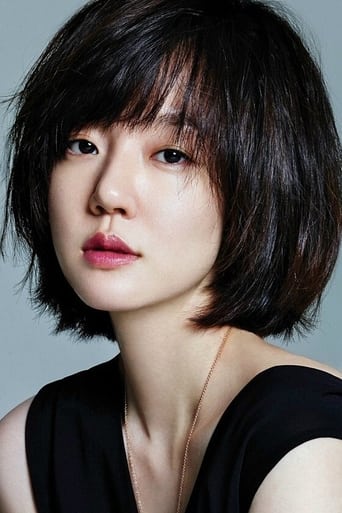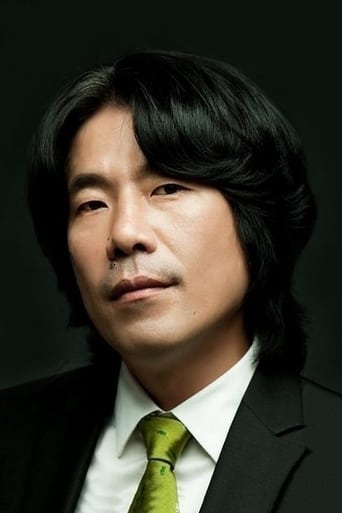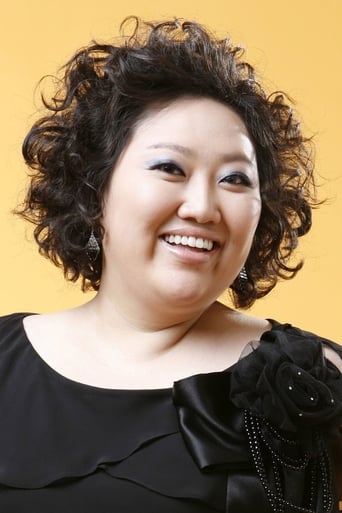Karry
Best movie of this year hands down!
FeistyUpper
If you don't like this, we can't be friends.
Moustroll
Good movie but grossly overrated
Rosie Searle
It's the kind of movie you'll want to see a second time with someone who hasn't seen it yet, to remember what it was like to watch it for the first time.
Artur Machado
A strange and at first glance difficult movie to follow, but it pays off, being visually stunning and very colorful with a captivating story.A girl is admitted to an asylum because she thinks she is a cyborg and refuses to eat because she'll become ill if she does. Inevitably she creates connections with other patients, especially with a young man who gains her affection and he, through his 'visionary madness', does everything to help her overcome her problem.What sets this movie apart is that it is done in such a way that we can literally see and understand the madness of the characters who, in spite of this madness, never cease to be human beings as sensitive or even more than the 'normal ones'. A beautiful, magical, poetic and touching movie like few.
Harry Waterman
Park Chan-Wook's incredibly strange romantic art-house film narrates the romance and carnage that follows when a woman who fantasises that she is a cyborg meets a paranoid man in a mental institution who believes that he is steadily transforming into a single dot. Seriously. Whilst the film is kooky and kind of sweet in an eighty foot teddy bear kind of way, the film renders its audience completely oblivious to its message of humanity over conformity and the humanistic fear of helplessness, all because its far too colourful and its ridiculous plot completely overshadows its subplot; unfortunately what's implied is ignored for what is seen.
Jonny_B_Lately
First, I want to readily acknowledge that long-time fans of director Park's works hated this film. It was nothing like "Sympathy for Mr. Vengeance," "Oldboy," or "Sympathy for Lady Vengeance" and that is understandable. This is a very different film. But it is clear from box- office receipts that this was a flop as far as Park's country-men were concerned; they hated it too.WARNING: SPOILERS PRESENT! Young-goon (played by Lim Su-jeong) has lost her sanity. While assembling a radio in a factory she imagines that the assembly instructions coming from loudspeakers are telling her to open her wrist, insert house current wires, and plug herself into an outlet so she can recharge. She thinks she's a cyborg and her mission in "life" is to avenge her grandmother's commitment to an asylum for Alzheimer's victims. Once committed to her own asylum she refuses to eat. The staff do not understand this, but from Young-goon's perspective it makes perfect sense; she has to recharge not eat. After all she often tells the staff "I'm not a psycho: I'm a cyborg."Naturally this is a delusion, but a very complete one and since she's convinced that she is a cyborg she feels no obligation to explain her reasoning to the staff, instead preferring to converse with vending machines, radios, and light fixtures. Il-soon (played by Rain), another inmate, is a known theft of quirks, attributes, and ailments. He is often asked by other inmates to steal their insecurities or the very social quirks that got them committed in the first place. Apparently he is very effective as the inmates that have asked for his help improve mentally. Young-soon learns of this and convinces him to steal her "sympathy" (a cyborg sin) so she can effectively gun down the staff of the asylum.Of course Young-soon's "hunger-strike" is killing her and fellow inmate, Il-soon, manages to convince her that he has created a "rice megatron" that converts eaten rice directly into electricity. Once he "installs" this in her back she feels free to eat and her health improves.Of course the staff is grateful, but they don't really understand what he did or how he did it.The story is told with such care and humility that you can't help but love the characters, feel complete sympathy for them, and relate fully with them even though they are clearly not in full possession of their mental faculties. Park has deftly treated the subject of mental aberration with care.As should be expected of a Park film, the delusions of violence against the staff are blood drenched gore. After all, Young-soon as a cyborg, once her sympathy is stolen, she is a highly effective killing machine.As a love story it is very different. It is not about sex; it is, instead, a story of care and compassion for one's fellow human being.I predict that in the coming decades this will be seen as Park Chan- wook's finest film. Much like Frank Capra's "It's a Wonderful Life" was widely panned when released, but is now one of the few films he is remembered for.
Imdbidia
South-Korean director Chan-wook directs an original story about friendship and love in a mental asylum.Cha Young-goon (played by Im Su-jeong) develops a mental illness after her schizophrenic grandmother is interned and separated from her. Cha believes she is a killer cyborg and does not eat, and has been told that she has to master a cyborg's seven steps of perfection to get rid of her human psyche and be able to seek revenge on her grandma's captors - the men in white (paramedics and nurses). When interned, Cha meets Park Il-soon (played by Rain) a ping-pong player antisocial guy that steals other people's souls, who takes an immediate interest in her.What makes this film so especial is that the movie offers the reality both as the insane see it, from their subjective point of view, but also as what it is, that is from an objective point of view. In fact, the real facts are used more to anchor to story and makes the rest understandable than to focus on the reality itself. The craziness, manias and obsessions of the insane are presented as an an essential part of their personality, not as an aberration of the same, therefore, the para-reality they live in becomes real and acceptable for the viewer. More importantly, the script does not try to redeem the characters from their insanity, but make that insanity meaningful and tolerable for their survival. It could have been really easy to present the insane as pathologically aggressive and nasty, as most movies about madness do, or like loonies without feelings or real human heart, but the script deviates from the obvious and presents a surreal world that is full of magic, pain, suffering and happiness, in which different people with a different pathology are able to tick and connect to a deep human level.All the characters are treated with empathy, tenderness, warmth, naivety and a great sense of humor. The characters' studio combined with a light playful approach to the stories works perfectly on the screen and makes the craziness completely engaging. The movie is also a good reflection on personal identity and how important is the way we internally see ourselves to position ourselves in society and the world.The film is extremely stylish and artistic, too, from the credits to the cinematography to the lighting. The start is fantastic and the way the credits are presented and incorporated into the story. Grand class are the initial scenes of Cha working in her factory before she tries to "recharge her batteries": the contrast and sharpness of the colors, the camera angling and scene pacing create a wonderful eye candy moment that is a big contrast to the rest of the movie, dominated by pastel and white-ish colors. The movie has many surreal and dream-like scenes, beautifully filmed, which really help to convey the reality as perceived by the insane.Although the movie is cataloged everywhere as a romantic story, to reduce this story to a romance story is to devalue a film that has much more to offer. Romance is just another piece in the puzzle, the one that gives its magic to the story, the redemptive element of Cha's survival; it develops piano piano, but is not cheesy but wonderfully quirky and special.All cast members are good in their respective roles, and the main actors, Im an Rain (and the actress who plays the food-obsessed lady) are believable in their portray of their fragile but complex characters.My main critique to the movie is its pacing, that is sometimes a bit too slow, and the cohesion among all the insane in the asylum, which is obvious in some parts of the movie, but it is not well explained or shown at times. I would have liked that the director used strong colors for the whole movie, which would have been much more intriguing and worked perfectly with the stories, instead of the expected asylum whites and pastels; still, this is a personal preference, not a critique.This is a mesmerizing movie for on-mainstream film lovers. It has something special and unique that will stay with you for a long time.The movie won the Alfred Bauer Award at the Berlin International Film Festival in 2007.






